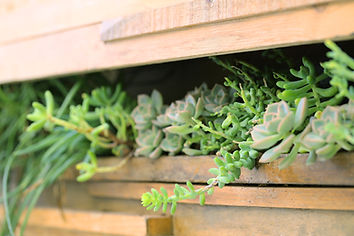The Truth the Whole Truth
- Karen Amaden
- Jan 20, 2021
- 3 min read
Updated: Aug 26, 2022
Deborah Adele, in her book The Yamas & Niyamas, repeated Carl Yung asking, “what is so dangerous in the moment about the truth that you are choosing to lie?’.
Ouch.
Now, I am not one to make a habit of telling a lie, however, it happens. That fib is out of my mouth before I even realize.
“How are you doing today?”
“I’m fine.”
Ghaaa, it’s that simple and it happens fast, my lie.
This happens every day, to all of us. It is part of our culture. We respond regardless of how we are truly feeling. What is so dangerous in the moment about the truth; that we feel the need to lie. To a person living in grief, the question is agonizing. The “danger in the moment” is the risk we take by being honest. The risk is vulnerability. How much truth is appropriate? Does the questioner even care? What will they say if I am truly honest? How am I going to handle the hurt when they try to ignore my response and quickly change the subject? What if they truly are sincere but can’t handle my truth? The struggle is real. The struggle is daily. Being vulnerable takes courage.
We have to be honest with ourselves first. We have to be Real. By being honest with ourselves, we will know what we need. We will be better equipped to verbally express what it is that will help us become resilient in our grief. We will know our pain and hurt. We will know our focus and our concerns and our hopes. Truthfulness with ourselves will better enable us to BE with our grief in a genuine way. Being truthful with ourselves, while not always easy or pleasant, is trustworthy.
But, how do we handle truthfulness with others? How do we become vulnerable when faced with questions? What level of intimacy do we want to create? Honesty creates intimacy. We become intimate with ourselves as we truthfully look at what the grief in our life looks like. The same goes with those with whom we share the truth of our grief. There are those closest to us that we can trust with our honest heartfelt grief. Those few select people can bear the true, ugly, messy, beauty of grief. They can hold us as we sob and won’t ask us to stop. These are the ones who do not care if our snot gets on their shirt. They deserve and want our truth.
The other moments, with other people, are those times when in a split second we ask ourselves, how much detail do they deserve and do they even care? Not everyone deserves to share in the sacredness of our grief; it is so very personal and special. We don’t have to share it with everyone who asks. We have that right. Our grief is our own and not to be tarnished by unsolicited advice, false platitudes and ignorance. However, we can be truthful in the moment. We can realize that the moment doesn’t need to be dangerous and we can respond with honesty instead of a lie.
It may be helpful to have a few truthful responses ready when asked the question, “How are you?”. For example, “Today I feel______, but tomorrow will be different.” “Grief is hard, but I’m doing it.” “I have great memories of _______and they make me smile.” “I really don’t want to talk about it right now.” Make sure the response is truthful but simple. Only share what is comfortable and realize that the person asking the question isn’t in our circle of intimate friends, therefore they don’t get the privilege of sharing in our sacred grief.
My hope is that everyone has at least one person with whom they can share the deepest depths of grief. That one special person that is willing to sit in silence for as long as we need them to or listen to us share the same thing over and over again. There should be no moment that is so dangerous that we are tempted to lie. Our grief is sacred, we hold it in our hearts and honor it with our life.






Comments